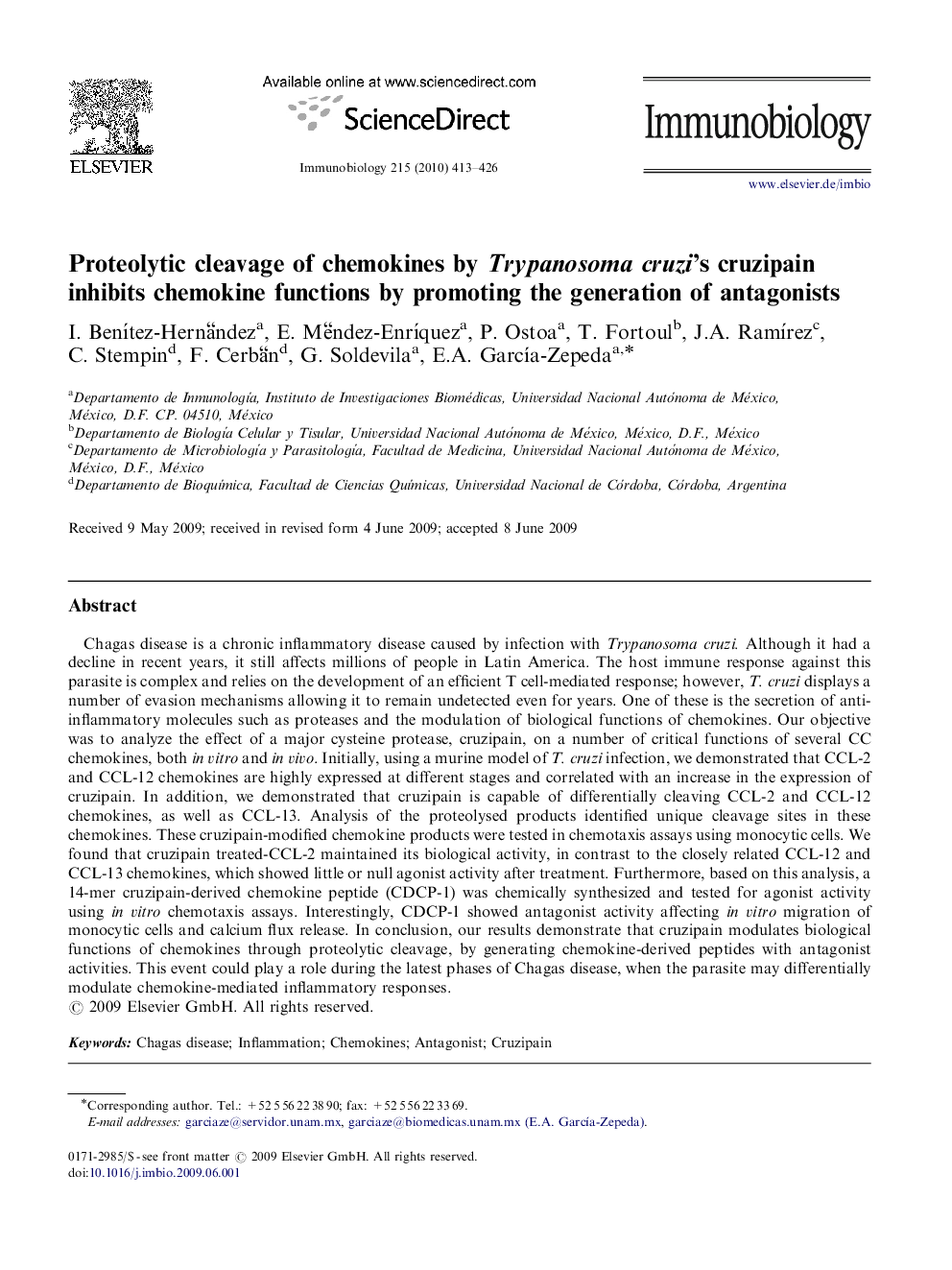| کد مقاله | کد نشریه | سال انتشار | مقاله انگلیسی | نسخه تمام متن |
|---|---|---|---|---|
| 2183822 | 1095593 | 2010 | 14 صفحه PDF | دانلود رایگان |

Chagas disease is a chronic inflammatory disease caused by infection with Trypanosoma cruzi. Although it had a decline in recent years, it still affects millions of people in Latin America. The host immune response against this parasite is complex and relies on the development of an efficient T cell-mediated response; however, T. cruzi displays a number of evasion mechanisms allowing it to remain undetected even for years. One of these is the secretion of anti-inflammatory molecules such as proteases and the modulation of biological functions of chemokines. Our objective was to analyze the effect of a major cysteine protease, cruzipain, on a number of critical functions of several CC chemokines, both in vitro and in vivo. Initially, using a murine model of T. cruzi infection, we demonstrated that CCL-2 and CCL-12 chemokines are highly expressed at different stages and correlated with an increase in the expression of cruzipain. In addition, we demonstrated that cruzipain is capable of differentially cleaving CCL-2 and CCL-12 chemokines, as well as CCL-13. Analysis of the proteolysed products identified unique cleavage sites in these chemokines. These cruzipain-modified chemokine products were tested in chemotaxis assays using monocytic cells. We found that cruzipain treated-CCL-2 maintained its biological activity, in contrast to the closely related CCL-12 and CCL-13 chemokines, which showed little or null agonist activity after treatment. Furthermore, based on this analysis, a 14-mer cruzipain-derived chemokine peptide (CDCP-1) was chemically synthesized and tested for agonist activity using in vitro chemotaxis assays. Interestingly, CDCP-1 showed antagonist activity affecting in vitro migration of monocytic cells and calcium flux release. In conclusion, our results demonstrate that cruzipain modulates biological functions of chemokines through proteolytic cleavage, by generating chemokine-derived peptides with antagonist activities. This event could play a role during the latest phases of Chagas disease, when the parasite may differentially modulate chemokine-mediated inflammatory responses.
Journal: Immunobiology - Volume 215, Issue 5, May 2010, Pages 413–426